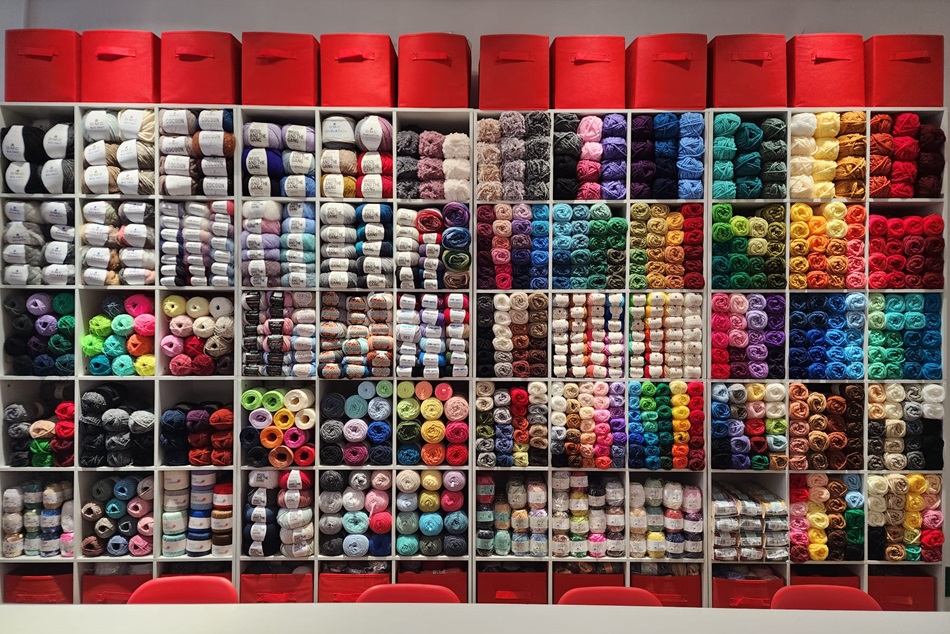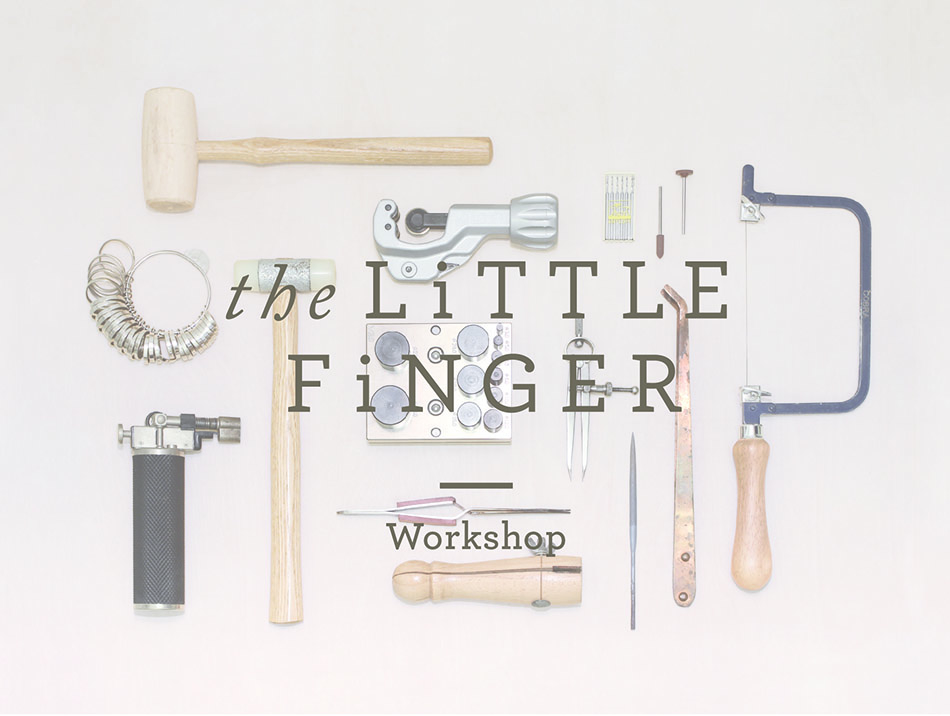Leisure & Culture #51
Urban Beekeeping
Slovenia
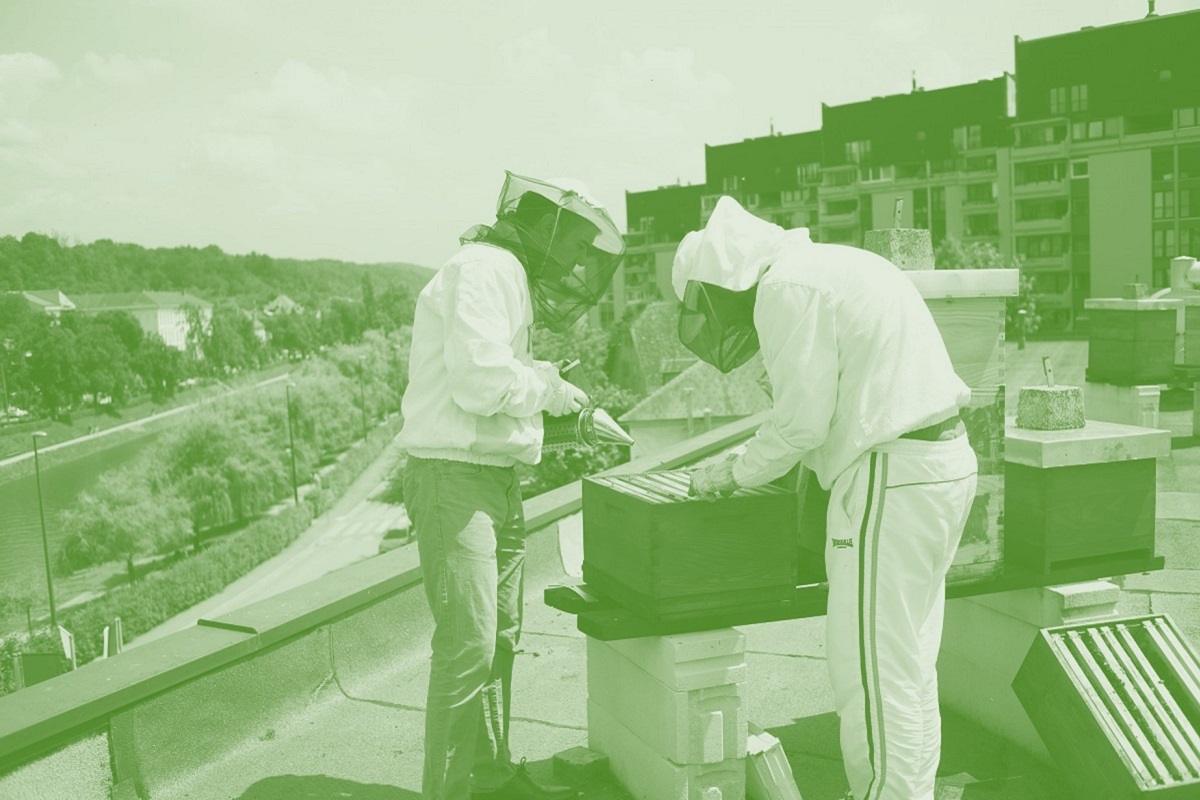
Text by Sim
Photo by Sim
Translated by Derek Leung
The recent discussion on the collective death of bees sparks the hypothesis that humans can neither live long if the bees are extinct, due to the fact that the global food crisis will indirectly aggravate since a large number of agricultural products around the world, especially fruit trees, rely on bee pollination to grow. In order to arouse public awareness and effective from this year, May 20th is designated by United Nations as the first ever World Bee Day, following the proposal raised by Slovenia, an bijou country in central Europe.
Beekeeping is a tradition of importance in Slovenia. Five out of every 1,000 citizens keep bees and most of whom are amateur “hobby beekeepers”. In recent years, more of such a countryside practice can be found in the capital of Ljubljana, turning the city to be an urban hotspot for keeping these insects.
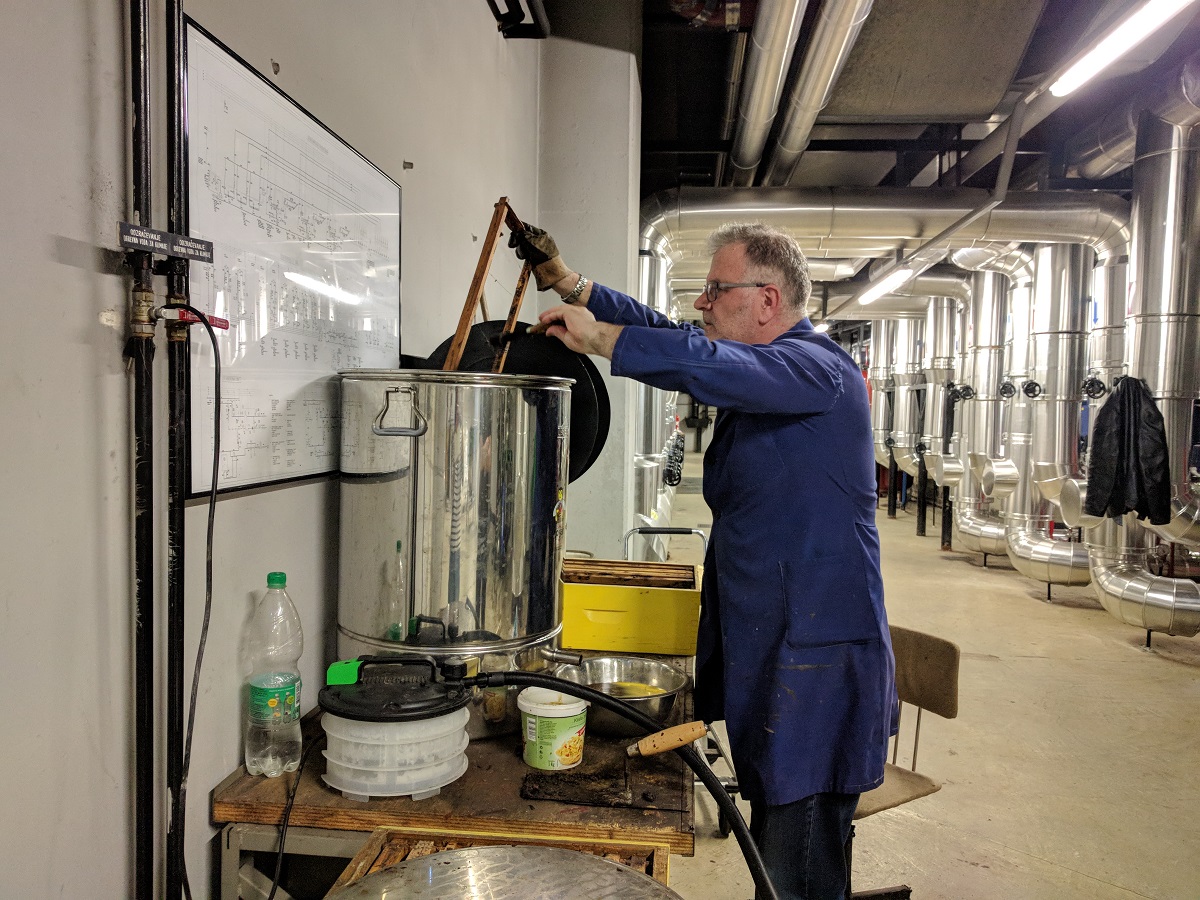
The 60-year-old Franc is the first person in urban beekeeping in Ljubljana. Having learnt that bees are kept on the rooftop of an opera house in France, he proposed the same to the cultural center Cankerjev Dom (CD) for which he works. The immediate greenlight from the management allowed him to keep bees on the toppest level of this cultural landmark by spending two hours weekly to take care of them.
Contrary to the traditional AZ bee house (image on left as below) that Slovenia takes pride in, the LR beehive (image on right as below) enjoying popularity in Europe and America is introduced to this Europesn country for smaller spatial need and higher flexibility in beehive placement especially for the urban environment.
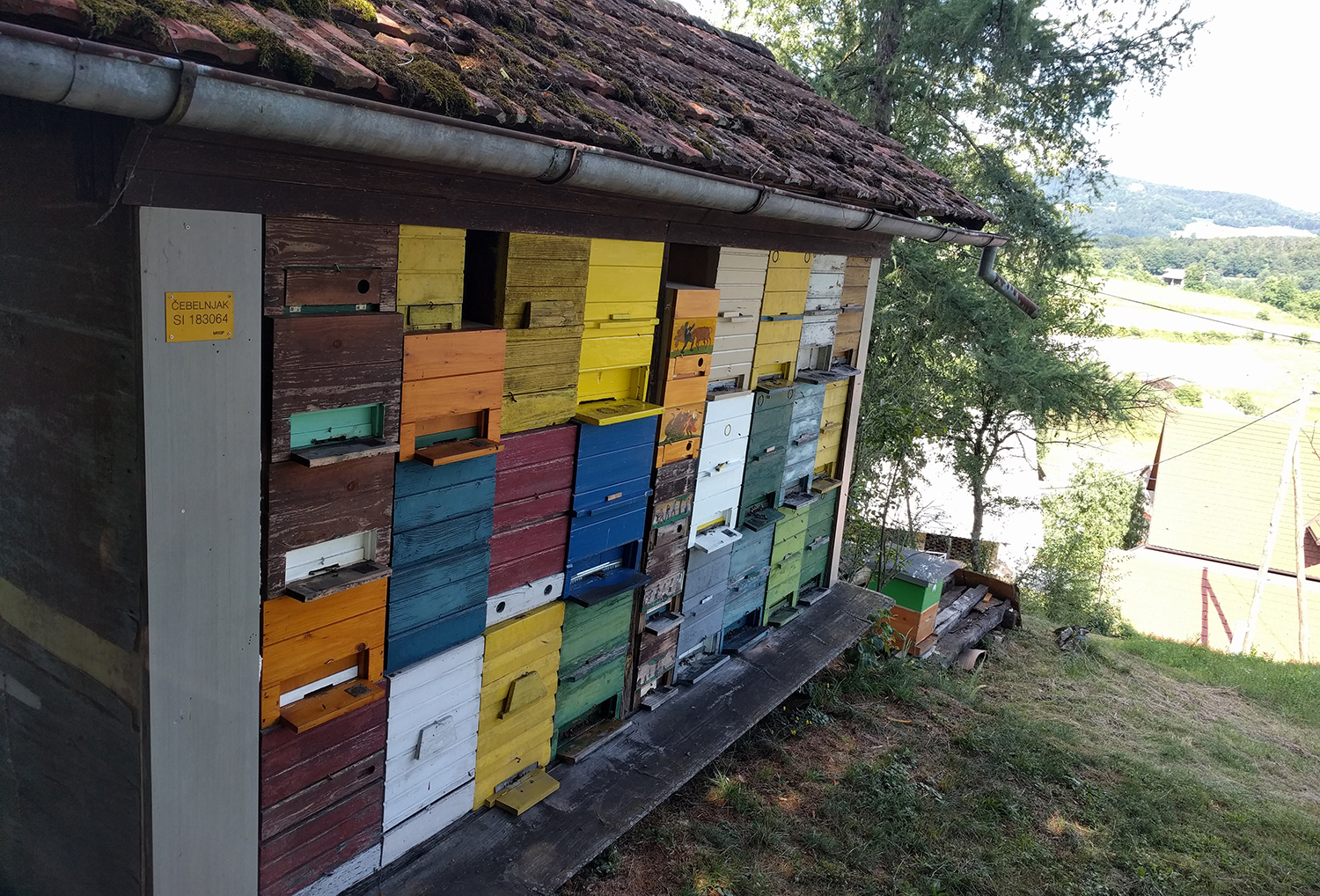
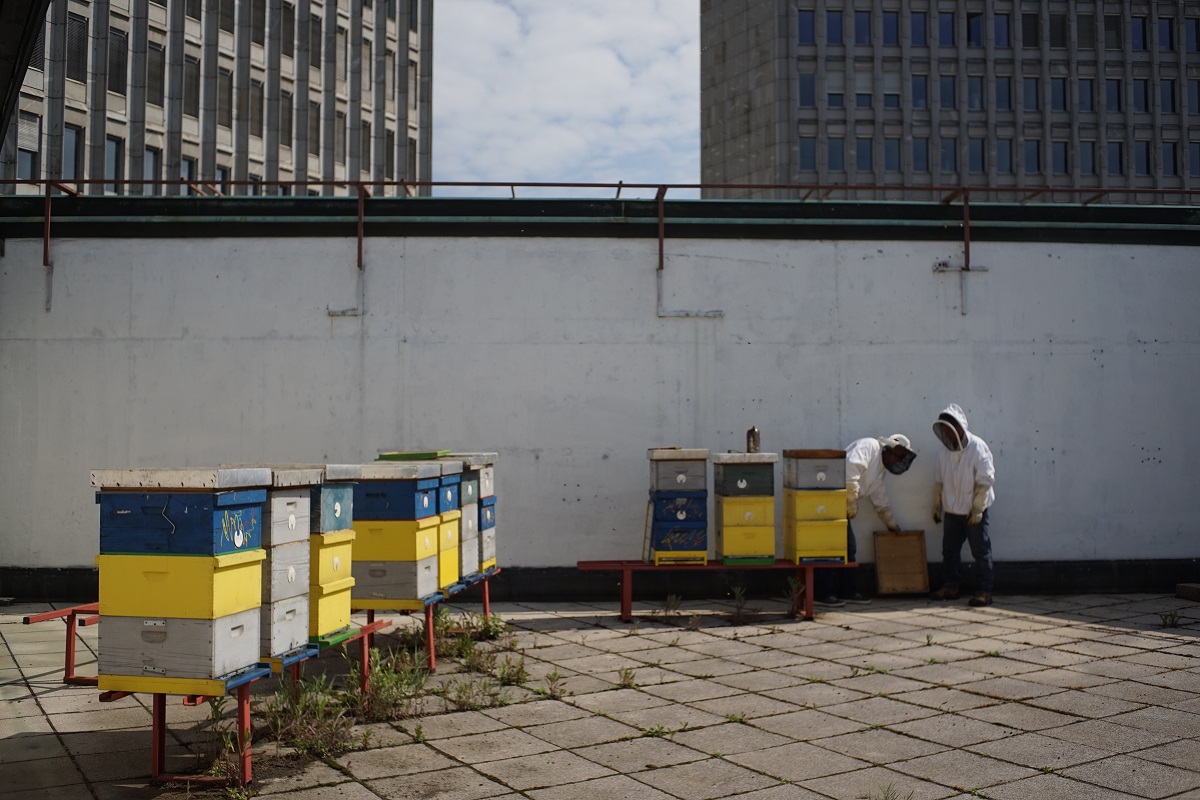
From four beehives at the beginning to more than ten at the moment, 20 kilograms of honey can be produced per hive per year and all this sweet nutrient iis handed over to CD as a commercial giveaway. "At the beginning, many people doubted if the honey produced in the city would be polluted, but the test in Germany proved the quality of our honey was even better than that produced in the countryside!"
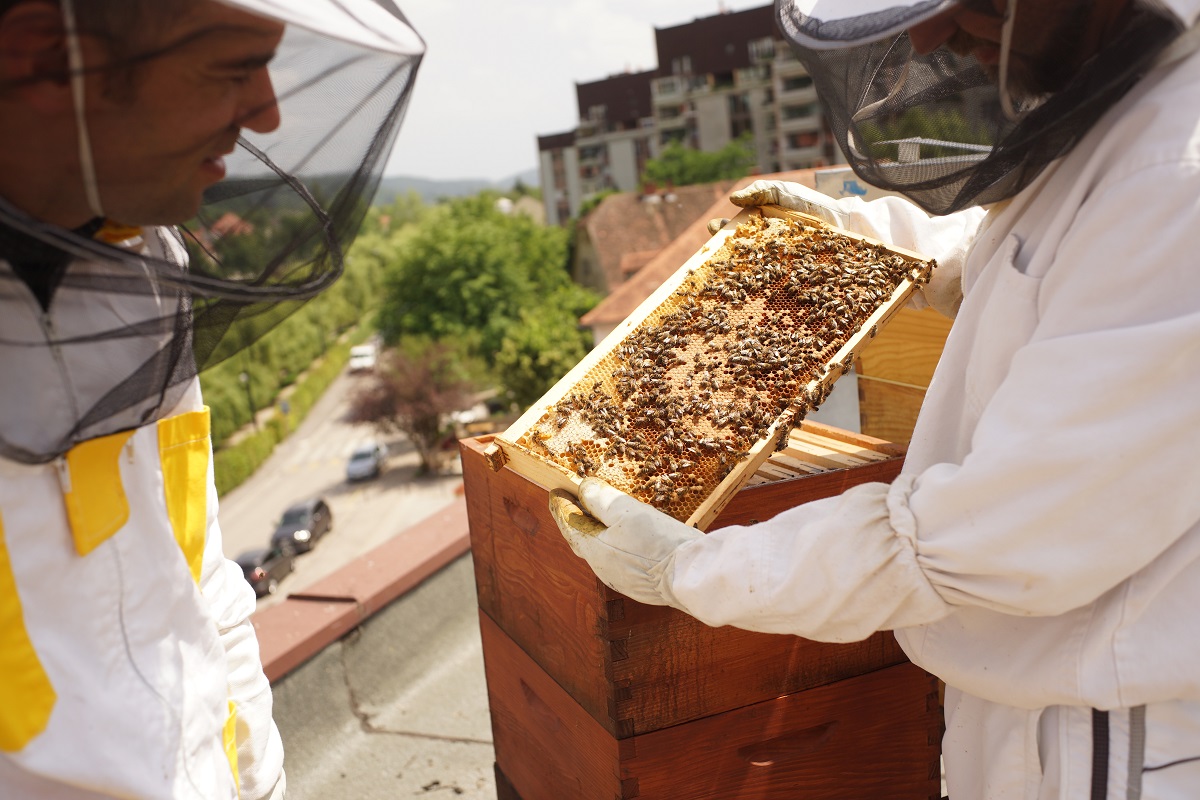
While Franc looks easy in dealing with hundreds of thousands of bees, he is required to take regular injections of venom to produce antibodies against his allergy to bee needles. Furthermore, beekeeping is not as simple as imagined. His bees are completely annihilated by pests in the first winter and he has to restart everything in the second year. That said, the uncertainty is indeed the very point of attraction for such a practice. "I like watching the annual birth of new lives and the growth of different bee families which represent their interaction with Nature."
In addition to the CD, there are countless beekeeping spots in the city. Gorazd, a film critic and Franco's apprentice, even offers a beehive for hire programme where guests pay him an annual fee and provides the place for his services of taking care of bees and providing honey.
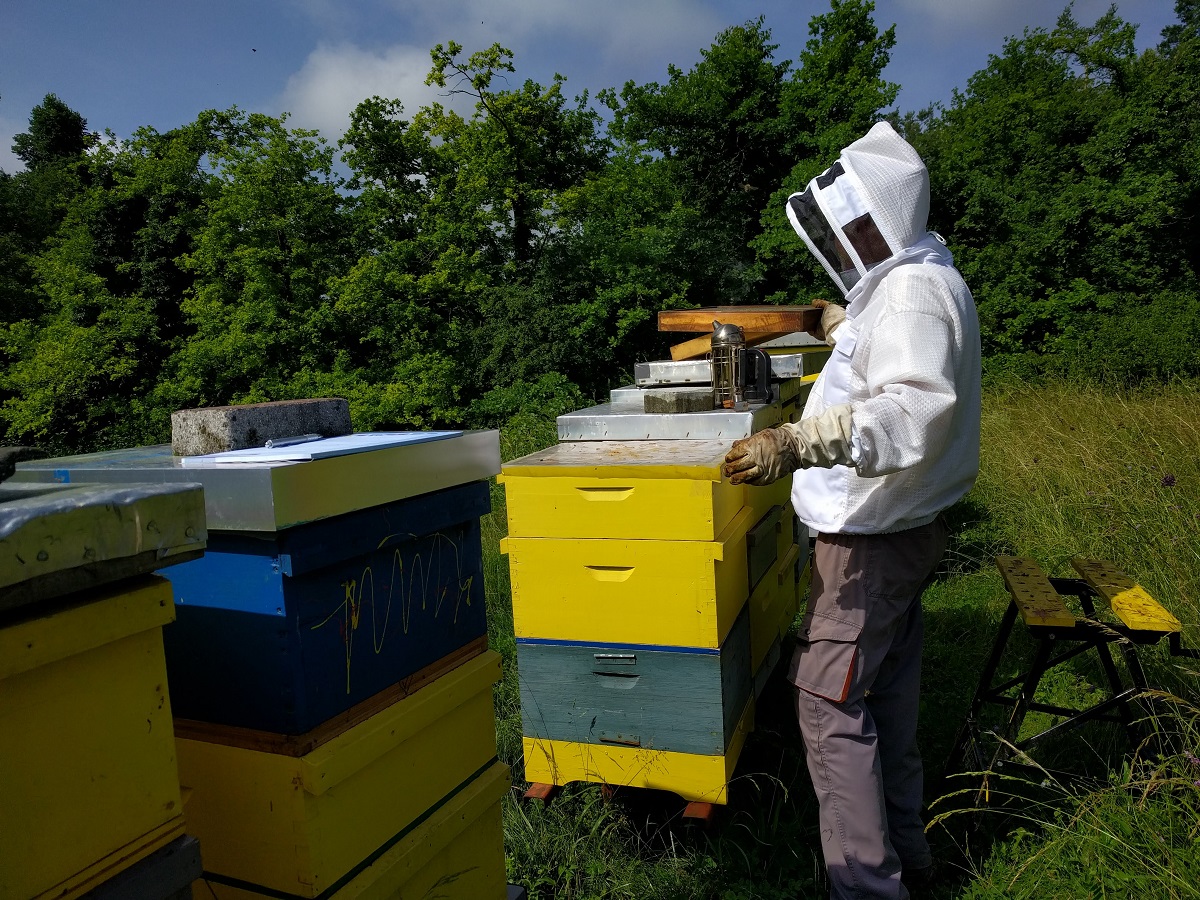
Some 50 different locations including but not limited to foreign consulates, schools, hotels, parliaments are invariably the habitats for bees and the honey produced is mainly used for publicity, commercial gifts and educational purposes, making bees the best publicity ambassadors for these parties.
"Beekeeping is the channel with which I can still connect with Nature in the city,” claimed Franc.
At present, a minimum of 300 beekeepers live and look after hundreds of millions of bees in Ljubljana, showing the coexistence of both humans and bees in reality.
While urban beekeeping is also present in metropolises such as London, Hamburg, New York and even Hong Kong, with some people experimenting this in the downtown area, no cities can be compared to Ljubljana in terms of development. What is most worth learning is that their municipal government consult the botanical garden about the preferential nurturing of "bee-friendly" primitive and flower-bearing plants when the green policy has to be implemented.
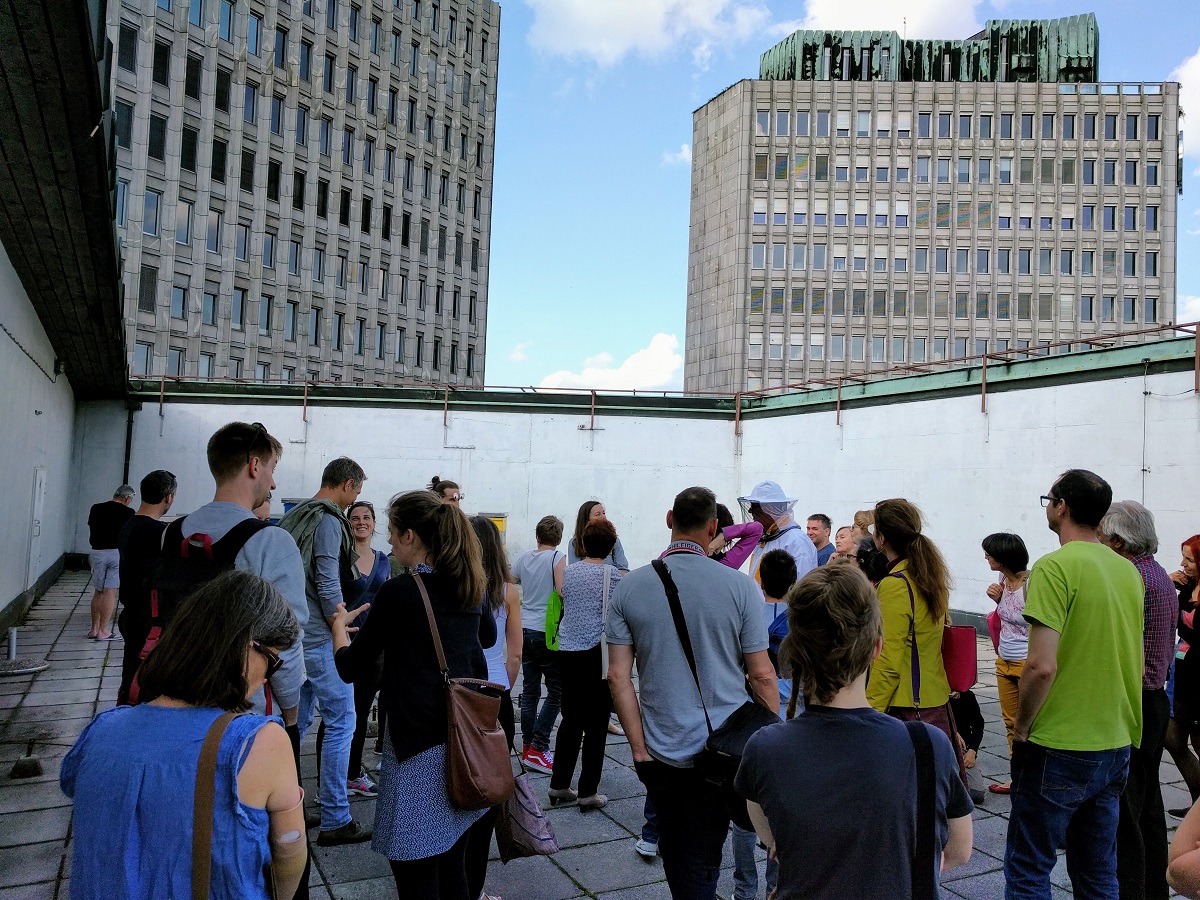
Local beekeeping associations will offer regular free beekeeping courses whereas the necessary tools for beekeeping novices can be subsidized by the public shroff, resulting undoubtedly in an increase of young beekeepers and consumers who prefer buying honey directly from beekeepers to chain stores, and even further a more down-to-earth and humanized honey trading space beyond the capitalist market.

